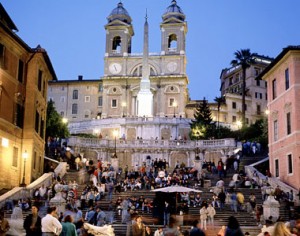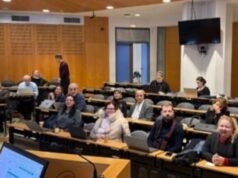 On 28th July 2010 Rome City Council gave its approval, in accordance with Article 14, Paragraph 16, Letter e), of the Decree Law No.78 dated 2010, as converted by Law No. 122 dated 2010, to the introduction of an overnight accommodation tax on tourist services in the city (Municipal Council Resolution No. 67 dated 28th/29th July 2010).
On 28th July 2010 Rome City Council gave its approval, in accordance with Article 14, Paragraph 16, Letter e), of the Decree Law No.78 dated 2010, as converted by Law No. 122 dated 2010, to the introduction of an overnight accommodation tax on tourist services in the city (Municipal Council Resolution No. 67 dated 28th/29th July 2010).
The fee, which is intended to financially assist the city’s efforts in organizing urban services, is aimed at ensuring the standard of the tourists’ stay is both highly efficient and of the best quality.
The fee is set to be applied as of 1st January 2011 and will be asked of anyone staying in every overnight accommodation inside Rome’s boundaries, with the sole of exception of hostels, at the end of each stay.
Please note that the fee is also asked of anyone who has booked or paid for the trip through a travel agency or tour operator and therefore pays by presenting a voucher at the reception desk. In the same way, as the grounds for the tax are not the general services provided by, for example, a hotel, but for overnight accommodation in the city, the fee is asked of anyone even where agreements stipulate exemption from payment of hotel bills (for example: group guides, CITI tourist coach drivers, etc.)
Children under the age of 10 years are on the other hand exempt from payment.
Details of Fee:
Camp sites 1 Euros per person per night max 5 days
Farm Inns 2 Euros per person per night max 10 days
B&B 2 Euros per person per night max 10 days
Rented Rooms 2 Euros per person per night max 10 days
Holiday Homes 2 Euros per person per night max 10 days
Holiday Apartments 2 Euros per person per night max 10 days
1, 2, 3-Star Hotels 2 Euros per person per night max 10 days
4, 5-Star Hotels 3 Euros per person per night max 10 days.
Note that there are no exemptions for guides or drivers. There is more detail than previously about the applicability of the tax on pre-paid business – for example where clients present a voucher for their stay. Note also that, despite the imminent introduction, the proposal has still not been formally adopted so changes are possible.
ETOA will continue to oppose the imposition of such taxes, especially those proposed without due notice and consultation. We will press the city to explain what benefits tourists will see from the revenue generated. We will also seek to establish dialogue with Italy’s Ministry of Tourism’s in the light of their proposal to develop a ‘Code of Tourism’.











